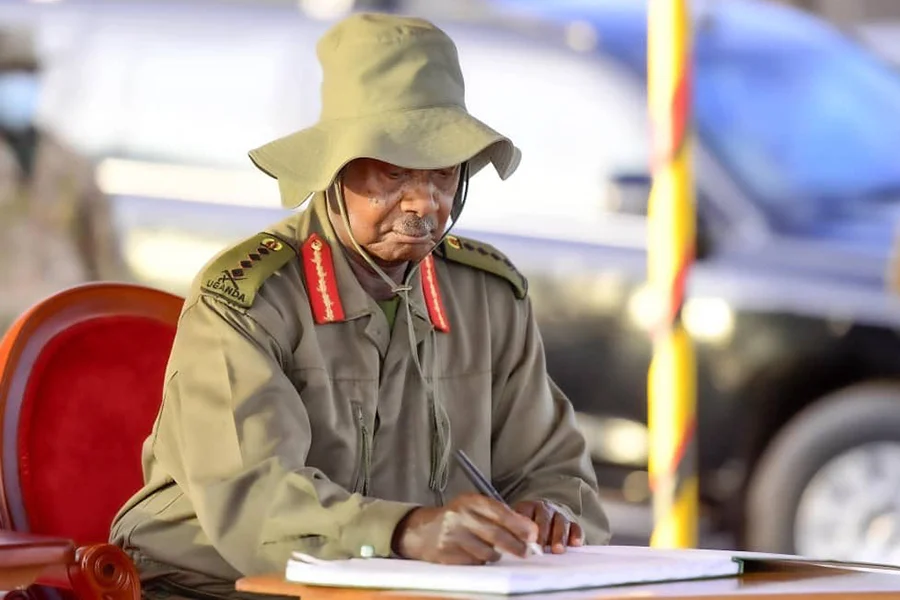In This Article
- Introduction
- Key Provisions of the UPDF Amendment Bill
- Criticism from Opposition and Human Rights Groups
- Political Context and Legislative Process
- Future Legal Challenges
Key Takeaways
- President Yoweri Museveni has signed the UPDF Amendment Bill 2025 into law, facing significant backlash from opposition and human rights groups.
- The new law expands military courts' authority to prosecute civilians for offenses such as possession of military equipment and collaboration with military personnel.
- Critics, including opposition leader Joel Ssenyonyi, have labeled the law as 'rushed and draconian,' warning it could undermine judicial independence.
- The ruling National Resistance Movement pushed the bill through parliament despite opposition boycotts, raising concerns about Uganda's democratic space.
- Opposition and human rights organizations plan to challenge the law in court, arguing it violates constitutional protections.
President Yoweri Museveni has signed the contentious Uganda People’s Defence Forces (UPDF) Amendment Bill 2025 into law, a decision that has ignited fierce backlash from opposition figures and human rights organizations. Critics assert that the legislation undermines constitutional safeguards and poses a threat to judicial independence.
The newly enacted law significantly broadens the authority of military courts to prosecute civilians under certain conditions. Specifically, it allows military tribunals to handle cases involving civilians charged with possessing military equipment or those accused of collaborating with military personnel in serious offenses, including treason and murder.
Opposition leader Joel Ssenyonyi has described the law as “rushed and draconian,” characterizing it as a move to “legitimize illegitimacy.” Human rights advocates have expressed serious concerns that this legislation could stifle dissent and further erode judicial autonomy, especially in light of a recent Supreme Court ruling that deemed the trial of civilians in military courts unconstitutional.
Court Demands Government Accountability for School Feeding Program Failure
The Constitutional Court has instructed the Ugandan governme...
Read moreDespite a boycott from opposition members, the ruling National Resistance Movement leveraged its parliamentary dominance to advance the bill, raising alarms about the diminishing democratic space in Uganda.
The opposition and various human rights groups have vowed to contest the law in court, asserting that it contradicts established constitutional protections.








Comments (0)
Leave a Comment
Be the first to comment on this article!